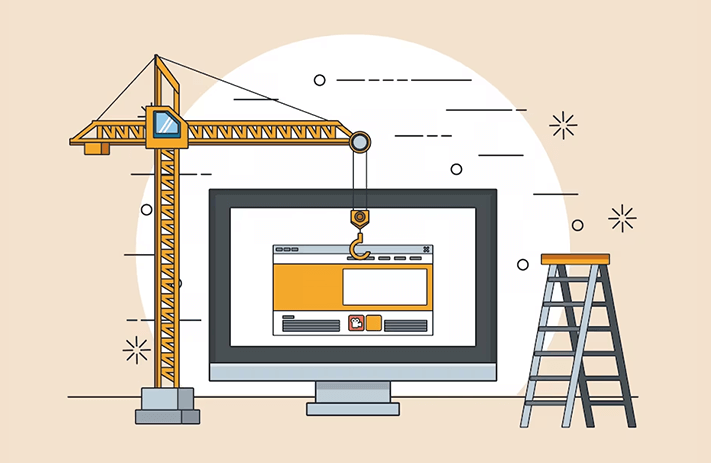In the fast-paced and intricate world of construction, the importance of efficient project management cannot be overstated. Project management in construction encompasses a broad spectrum of responsibilities, from the initial planning and design phase through to the execution and completion of the project.
It requires a seamless integration of various tasks, including budgeting, scheduling, workforce management, and communication. To achieve this level of coordination and ensure the successful completion of construction projects on time and within budget, a multitude of project management tools are utilized. These tools are not just aids but vital components that transform the complexity of construction into manageable, streamlined processes.
The Backbone of Construction: Comprehensive Project Management Solutions
At the core of effective construction project management is the use of sophisticated software solutions designed to tackle the unique challenges of the industry. These platforms offer a centralized repository for all project-related information, facilitating easy access and sharing among team members and stakeholders.
The capabilities of these systems are vast, ranging from project scheduling and time management to document control and resource allocation. They provide real-time visibility into project progress, enabling managers to make informed decisions and adjustments as needed.
One of the key features of these solutions is their ability to handle project scheduling with precision. Construction projects involve a multitude of tasks, each with its dependencies and timelines. Project management software allows for the detailed planning of these tasks, ensuring that each phase of the project progresses smoothly. This is critical in avoiding delays and mitigating the risk of schedule overruns, which can have significant financial implications.
Another indispensable functionality is resource management. Construction projects require the coordination of various resources, including labor, materials, and equipment. Effective project management tools enable managers to allocate resources efficiently, ensuring that the right resources are available at the right time. This not only optimizes resource utilization but also helps in reducing wastage and controlling project costs.
Enhancing Communication and Collaboration
Communication and collaboration are the linchpins of successful project management in construction. The dynamic nature of construction projects, with multiple teams working on different aspects of the project, necessitates a platform where information can be shared and accessed easily.
Modern project management tools are equipped with features that facilitate seamless communication among team members, regardless of their location. This includes messaging platforms, document sharing, and real-time updates.
Collaboration is further enhanced through the integration of various functions within the project management software. For instance, the integration of design tools allows for the immediate sharing of changes in project designs among all stakeholders. This real-time collaboration minimizes misunderstandings and ensures that everyone is on the same page, thereby enhancing the efficiency of project execution.
Risk Management and Compliance
Construction projects are fraught with risks, ranging from safety hazards to financial risks associated with budget overruns. Advanced project management tools come with built-in risk management features that help identify, assess, and mitigate risks. They provide frameworks for risk analysis, enabling project managers to anticipate potential issues and take proactive measures to avoid them.
Compliance with industry standards and regulations is another critical aspect of construction project management. Project management software aids in ensuring that all project activities are in line with relevant laws, regulations, and quality standards. This is crucial for avoiding legal complications and ensuring the delivery of quality construction projects.
The Role of Construction Equipment Management Software
The management of construction equipment represents a significant portion of project management, highlighting the need for specialized solutions like Construction Equipment Management Software. This software streamlines the process of managing construction equipment, from scheduling and maintenance to inventory management. It ensures that equipment is used efficiently, maintained properly, and available when needed, thereby minimizing downtime and contributing to the overall success of construction projects.
Conclusion
In the realm of construction, the deployment of effective project management tools is non-negotiable for the achievement of project goals. These tools offer comprehensive solutions that cover every aspect of project management, from scheduling and resource allocation to risk management and compliance. They empower project managers to maintain control over complex construction processes, ensuring projects are completed on time, within budget, and to the required standards.
As the construction industry continues to evolve, the importance of integrating advanced project management tools into construction practices cannot be overstressed. Among the myriad of options available, Construction Equipment Management Software stands out for its specialized focus on managing construction equipment efficiently. For construction companies looking to elevate their project management capabilities, partnering with a reliable provider like getclue can be a game-changer. Getclue offers innovative solutions that are tailored to meet the unique needs of the construction industry, ensuring that projects are not just completed but are completed successfully with excellence.

As the editor of the blog, She curate insightful content that sparks curiosity and fosters learning. With a passion for storytelling and a keen eye for detail, she strive to bring diverse perspectives and engaging narratives to readers, ensuring every piece informs, inspires, and enriches.










